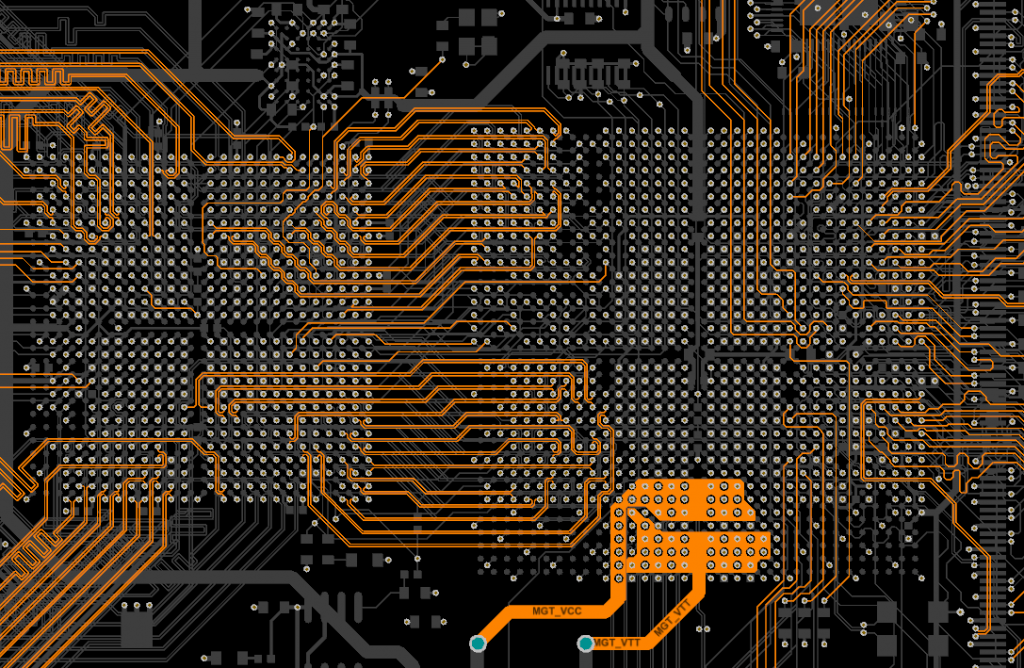Electronics, Software and FPGA development
bbs offers electronics, software / firmware and user interface development.
| Software Design | System Integration | Electronic Design | FPGA |
|---|---|---|---|
| – C/C++ – .net – Linux – Windows | – Mechanical Integration – Sensor Integration | – Analog and Digital electronics – High Speed Digital – Ethernet – PCIE Express – USB – Display Interfaces – FPGA | - Xilinx/AMD - Altera/Intel - VHDL - Block level - High Level Synthesis |

Advanced FPGA Development for Microdisplays and other Electronics – Customized Solutions
With expertise in electronics, software, and firmware development, we deliver reliable and efficient results that align with your project goals.
About FPGAs
An FPGA (Field-Programmable Gate Array) is a type of integrated circuit designed to be configured by the user after manufacturing. Unlike fixed-function chips (like processors or GPUs), an FPGA’s logic can be reprogrammed to execute a wide variety of tasks, making it highly flexible. It’s popularly used in e.g. image and video processing, video encoding, networking and machine learning systems.
Key Features of an FPGA
Although there are many, what makes an FPGA stand out most is its reconfigurability that allows it to adapt to changing requirements or applications. From customizable and programmable logic blocks to configurable interconnects that allow for flexible routing, FPGAs offer formidable flexibility while also granting excellent runtime performance due to their highly parallel architecture.
This is advantageous over CPUs, which execute tasks sequentially, and sometimes over GPUs, which are optimized for specific parallel workloads only.
When does an FPGA become the best option
An FPGA is the preferred solution over other alternatives such as CPUs, GPUs, or ASICs in scenarios where flexibility, parallelism, and hardware-level performance are critical.
FPGAs excel when a specific computational task requires custom logic for optimization. Unlike CPUs or GPUs, where you are constrained by fixed architectures, FPGAs allow you to design circuits tailored to your application.
A need for custom hardware acceleration is given in e.g. real-time image or video processing, signal processing for audio, radar, or communication systems and generally data intensive tasks such as high-speed financial computations like low-latency trading algorithms.
Why you should come to us
Differences in quality between FPGAs can significantly impact performance, reliability, and suitability for specific applications. These differences arise from a variety of factors, which become evident during testing, deployment, or in use.
Our high-quality solutions aim for both, maximizing the system’s potential and enhance the developer experience, ensuring stable and performant operation.
Should you have any more questions about our products, FPGAs or development services in general, please feel free to contact us. Our team of engineers will happily take the time to clear all uncertainties.
Information also available here.
